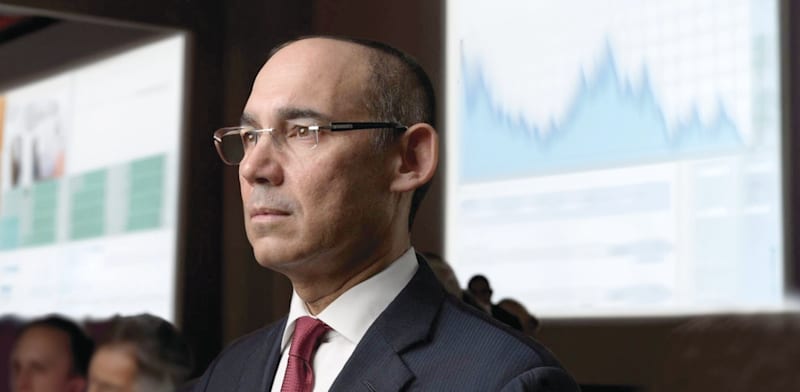The entire English Legal System has abandoned everything that once made Britain the beacon of human rights and liberty in the world. There is absolutely nothing left for Britain even to hold its head upright. This man, pretending to be a judge, ASSUMES what he said is racist, without acknowledging that the immigrants are NOT all of a particular race. Then he PRESUMES that those words instigated someone else to violence with ZERO evidence of that being the case at all. This is NOT the rule of law, and when that crumbles, the ONLY solution becomes revolution and violence, for there is no court of law that can ensure that society remains civilized.
Perhaps this “judge” who is obviously violating the English Bill of Rights should turn to Confusus. His legal doctrines are far better than this nonsense. Even Jesus Christ addressed a gathering of Jews and told them: “And you shall know the truth and the truth shall make you free.” Not in Britain. The truth will get you tax-free living in prison for 7 years.




The most famous trial where a jury stood up refusing to find the defendant guilty in the face of a corrupt government was that of William Penn (1644-1718), the founder of Pennsylvania. Penn was the leader of the Quakers in London, and you can see why people fled to America. The sect was not recognized by the government and was forbidden to meet in any building for the purpose of worship. In 1670, William Penn held a worship service on a quiet street, which a peaceful group of fellow Quakers attended. Penn and another Quaker, William Mead, were arrested for disturbing the king’s peace and summoned to stand trial.
As the two men entered the courtroom, a bailiff ordered them to put their hats, which they had removed, back on their heads. When they complied, they were called forward and held in contempt of court for being in the courtroom with their hats on. Penn discovered that contempt of court is a personal prerogative of the judge and an infliction of punishment by a judge who becomes the legislator, jury, and sentencing judge.
Penn demanded to know what crime he was being charged with preaching – the cornerstone of Due Process. The judge refused to supply any information as to his crime and instead referred vaguely to common law. When Penn protested that he was entitled to a specific indictment (NOTICE), he was removed from the presence of the judge and jury and confined in an enclosed corner of the room known as the bale dock.
Penn could neither confront the witnesses who accused him of preaching to the Quakers nor ask them questions about their charges against him. Several witnesses testified that Penn had preached to a gathering, which included Mead, but one showed some hesitancy as to whether Mead had been present. The judge turned to Mead and questioned him directly. In effect, the judge became the prosecutor, as he asked Mead if he was guilty. Mead invoked the common-law privilege against self-incrimination, which provoked hostile comments from the judge. The court then sent Mead to join Penn in the bale dock out of the sight of the jury and witnesses.
Finally, after the testimony, the court concluded that the judge had instructed the jury to find the defendants guilty as charged, dictating what verdict he had expected. Penn tried to protest but was silenced and again sent out of the courtroom. The jury, for its part, proved sympathetic to the two defendants and refused the judge’s command to find the defendants guilty.
At this point, the judge became so enraged, as I would expect from Judge Juan Merchan, and sent the jury back to reconsider their verdict. When they returned with the same verdict, the court criticized the jury’s leader, Bushnell, and demanded “a verdict that the court will accept, and you shall be locked up without meat, drink, fire, and tobacco…We will have a verdict by the help of God or you will starve for it.”
After that, the jury was sent back three more times but returned with the same verdict. Finally, the jury refused to reconsider. The judge then fined each jury member forty marks and ordered them imprisoned until the fine was paid. Penn and Mead went to prison anyway, held in contempt for obeying the bailiff’s order that they put on their hats.
Later, the jury members won a writ of habeas corpus and were released from prison. Penn and Mead left England after their release from prison, having a taste of English justice, and sailed to America. (Earl Warren, “A Republic, If You Can Keep It”, p. 113-115). Thus, Pennsylvania was founded. This was the Bushel’s Case (1670) 124 E.R. 1006, a famous English decision on the role of juries and that they possessed the independence to decide the validity of the law being prosecuted.
Where is the Magna Carta Right to a Trial by Jury of Your Peers?
This guy is forced to plead guilty to a non-crime because if he dares go to trial and the Judge refuses to allow the jury to nullify this insane Starmmer law, then he will be given the maximum time of 7 years+ for demanding a fair trial.




























